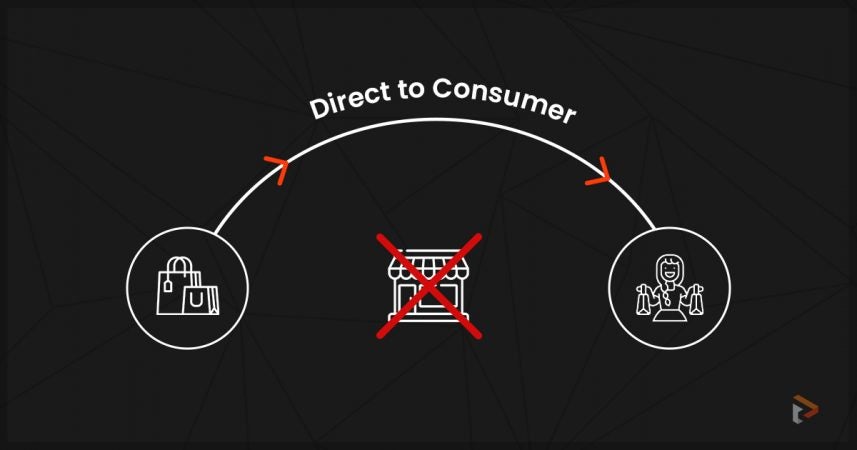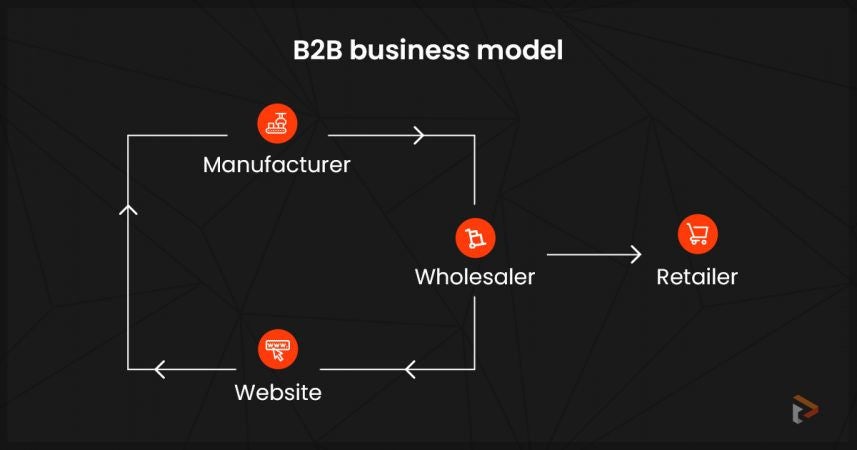Why do B2B businesses need to go D2C?
Catering to more customers and maintaining a nurturing relationship with them is a must for making profits, staying on top in the competitive market, expanding business operations, and boosting sales opportunities. And, direct to consumer selling strategy helps businesses achieve this goal and help them work towards becoming one of the top D2C brands in the buyer’s market.
Following are 5 major reasons why eCommerce businesses should make a transition from B2B to D2C.
#1: Increase revenue
Dealing directly with customers allows D2C sellers to offer fair-priced products, as they save on costs related to packaging, shipping, and retailers’ commission. Modestly priced products attract more customers to the eCommerce store, and the number of repeat customers also increases. With more users visiting eCommerce websites and making a purchase, brands can increase their revenue and profit margins.
#2: Build brand visibility
D2C business owners have a dedicated website, an app, and in some cases even a physical store, where customers can visit and buy preferred and brand specific products. This way, a D2C business model gives complete control of the supply chain to the business owners, which allows them to run marketing campaigns and target potential leads that will eventually convert to lifelong customers and strengthen their brand affinity.
#3: Boost customer engagement
Dealing with end users directly gives businesses valuable insights about the users interacting with their products across multiple channels. Having structured and high-volume data at their disposal, D2C brands can improve their conversion rate and customer retention rate by offering personalized products to their consumers. Direct interaction with customers helps businesses understand their requirements and deliver what they are precisely looking for in a product.
#4: Offer customer-centric shopping experience
B2B enterprises usually offer pre-designed products to other businesses. They follow a set procedure to produce a standardized commodity for their clients. However, with a D2C business model, manufacturers get an opportunity to introduce omnichannel shopping channels, enhance customer touchpoints (online and physical presence), track consumer behavior, analyze the shopping trends, collect direct feedback, and offer tailor-made products to the end customers.
#5: Expand business operations
Expanding business operations becomes easy with D2C eCommerce, as enterprise owners can leverage the latest technologies to gather customer insights and modify marketing strategies. With this approach, they can improve user experience, invest in product innovation, and work towards providing shorter turnaround times using direct to consumer selling strategies.
Best practices around D2C business model
Transitioning to a new business model can be a little daunting. But, with the following best practices, brands can get the most out of their D2C business model.
- Market research is the key that drives the D2C eCommerce business. Sellers should learn about the demographics, purchasing habits, prevailing market conditions, and understand the gap in the demand and supply chain to strengthen the market value of their products.
- Businesses should stand out from their competitors by visually appealing to their prospective leads. An engaging brand logo, responsive website design, and an interactive app can distinguish businesses from other players in the direct to consumer selling market and help them emerge as one of the top D2C brands in the marketplace.
- Every brand has a story that connects it to its buyers. Manufacturers should make themselves approachable and tell their brand story explicitly to build a lifelong relationship with their customers.
- One of the best practices around D2C eCommerce is having a cyber-safe website. Business owners should ensure that their eCommerce site is SSL certified, has pre-integrated and secure payment processing, and is scalable enough to prevent eCommerce frauds.
- D2C businesses should implement an effective customer support service to answer customer queries promptly. It is important to address customers’ concerns so that brands get positive feedback from them and gain word of mouth publicity, which can help them emerge as the fastest growing D2C brands.
- DTC business owners should make sure to include a variety of content about their products and services, such as videos, blogs, social media posts, and infographics to describe them in detail to their customers.
- Using the modern technological solutions and adopting latest eCommerce trends such as augmented reality, artificial intelligence, 3D rendering, virtual reality, and more can make the D2C brands uniquely recognizable.
The 3 fastest growing brands using D2C business model
Here’re 3 examples of B2B brands that adopted D2C eCommerce and are now one of the top businesses in their respective fields.
#1: Maven Clinic
Maven Clinic is a telemedicine startup that switched from B2B business model to D2C. They shifted from selling their products and services from healthcare providers to individuals and have recorded a significant increase in their sales and revenue.
#2: Hyphen Sleep
Hyphen Sleep, a mattress selling company based out of the USA implemented a D2C business model using the BigCommerce platform to sell quality mattresses online, directly to their customers.
#2: True North Gear
True North Gear, is a Seattle based company that manufactures fire gear for crews working in life-risking environments every day. They integrated their B2B and D2C channels into a unified platform to expand their capabilities using BigCommerce.
Paving way for a D2C business model
Transitioning from B2B manufacturers to D2C business models isn’t simple, but it is a necessity if businesses wish to survive in the competitive ecosystem. Also, the D2C business model allows enterprises to personally connect with customers, outreach globally, offer customized and innovative products, and build a profitable revenue stream.






